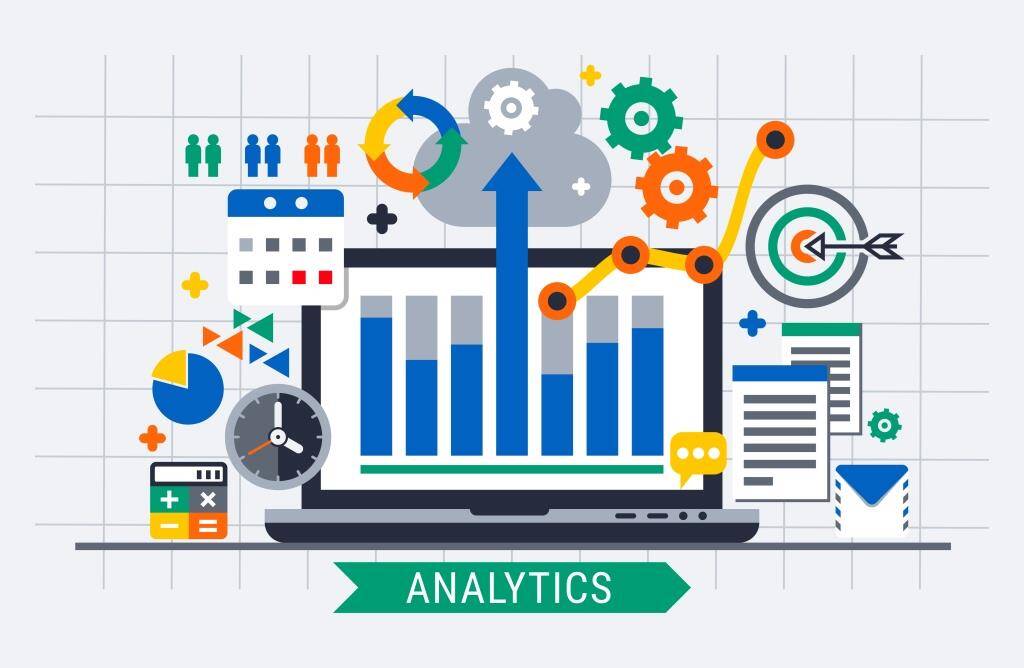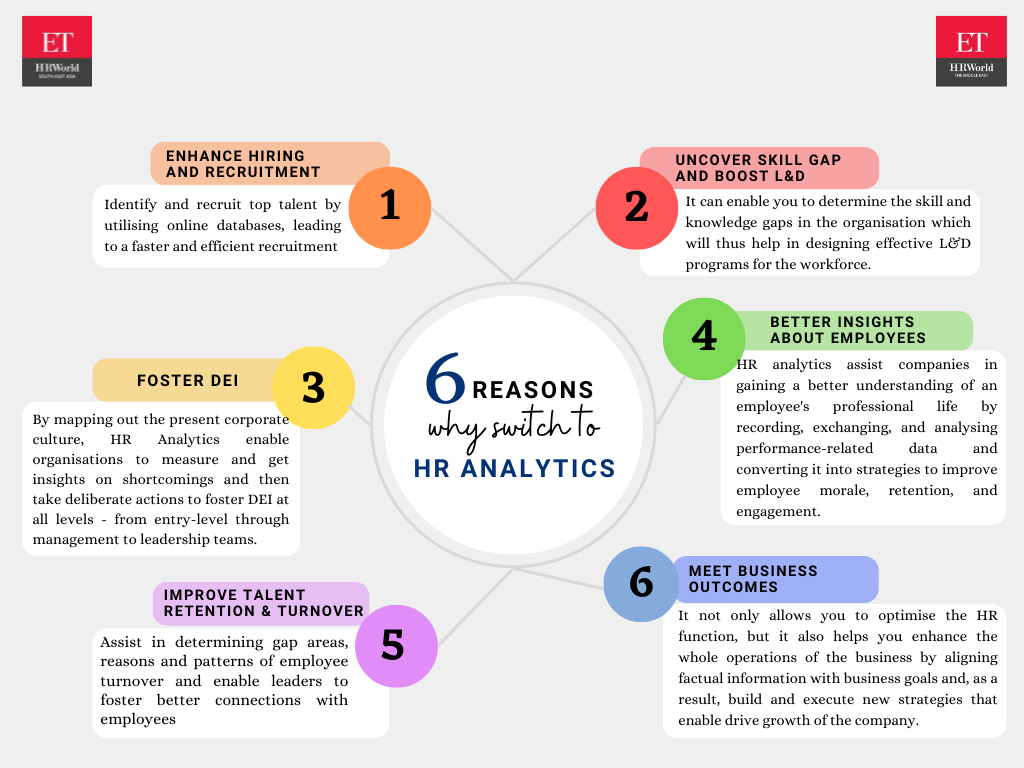Enhance Your Workflow with Intelligent Analytics Equipments
Enhance Your Workflow with Intelligent Analytics Equipments
Blog Article
Make The Most Of Development: Exactly How Analytics Drive Better Techniques
In today's data-driven landscape, organizations significantly acknowledge the pivotal duty of analytics fit effective development approaches. By harnessing information insights, organizations can fine-tune their operational methods, anticipate market adjustments, and enhance consumer involvement. The difficulty lies not only in accumulating data yet in successfully interpreting it to drive concrete outcomes. As we check out the vital advantages and approaches linked with analytics, a vital inquiry emerges: just how can organizations guarantee they are leveraging these understandings to unlock their full potential? The solution might redefine the future of tactical planning.
Recognizing Information Analytics
Information analytics is an organized computational evaluation of data that allows companies to reveal meaningful patterns and insights. This process encompasses a variety of techniques, including statistical analysis, anticipating modeling, and information mining, which collectively intend to transform raw data right into workable information - Analytics. By utilizing these methods, companies can make educated decisions that are rooted in empirical proof as opposed to instinct alone
The structure of information analytics lies in its capacity to deal with large amounts of information from diverse resources. This consists of organized information, such as databases, and unstructured information, including social media communications and client comments. Via the use of specialized software and devices, analysts can extract and refine this data efficiently, identifying fads and connections that might not be immediately apparent.
Recognizing data analytics also involves acknowledging the importance of information high quality and integrity. Trusted and precise data is critical for significant analysis; hence, organizations must carry out robust information administration practices. The iterative nature of analytics allows for constant improvement and improvement of techniques, making certain that organizations continue to be dexterous in the face of altering market characteristics and consumer habits.
Trick Benefits of Analytics

One of the essential benefits of analytics is its capacity to give actionable insights. Organizations can quickly assess large quantities of information, discovering patterns that might not be promptly evident. This aids in preparing for market changes and adjusting approaches as necessary. Additionally, analytics fosters a culture of evidence-based decision-making, reducing dependence on instinct and guesswork.
An additional considerable benefit is boosted consumer understanding. Analytics devices make it possible for businesses to segment their target market, track consumer actions, and customize advertising and marketing initiatives. This targeted technique not only boosts consumer engagement yet likewise drives greater conversion rates.

Implementing Analytics Techniques
To completely recognize the advantages of analytics, organizations have to adopt structured approaches see this website for execution. This starts with plainly defining objectives that align with broader business goals. By establishing details, quantifiable outcomes, organizations can concentrate their analytics efforts on areas that yield the highest roi.
Following, organizations must prioritize data administration to guarantee the stability and security of the data being examined. This entails establishing up procedures for information collection, storage, and access while adhering to appropriate guidelines. Making sure top quality data is vital for creating purposeful insights.
In addition, cultivating a society of data-driven decision-making is essential. This requires training employees to analyze analytics findings and encouraging collaboration across divisions. They are a lot more likely to integrate insights right into their everyday procedures. when groups understand the worth of analytics.
Last but not least, organizations must consistently assess and improve their analytics methods. The landscape of data and modern technology is consistently advancing, and remaining adaptable will permit organizations to take advantage of new devices and techniques successfully. By carrying out these organized approaches, companies can make the most of the effect of their analytics campaigns and drive sustainable growth.
Devices for Efficient Evaluation
Efficient analysis depends on a selection of devices that help with the removal of understandings from information - Analytics. These tools can vary from easy spreadsheet applications to advanced machine learning systems, each serving an one-of-a-kind function in the logical procedure
Information visualization software program, such as Tableau and Power BI, plays an important function in changing complex datasets right into understandable graphical depictions. These devices make it possible for analysts to recognize patterns and patterns promptly, enabling more educated decision-making.
Analytical evaluation software, like R and SAS, uses innovative capacities for carrying out in-depth analyses, including regression, hypothesis screening, and predictive modeling - Analytics. These attributes empower organizations to draw significant verdicts from their data, recognizing possible opportunities and risks
Additionally, database management systems such as SQL and NoSQL databases supply the needed framework for saving and quizing huge quantities of data efficiently. They guarantee that data is organized and obtainable for analysis.
Finally, organization intelligence systems incorporate numerous information resources, providing a thorough view of organizational performance. By utilizing these devices effectively, businesses can boost their logical capacities, allowing them to develop techniques that optimize development and enhance overall efficiency.
Instance Research Studies of Success
Successful companies frequently utilize information analytics to drive impactful methods, as evidenced by a number of notable instance studies. By employing these insights, Netflix has efficiently tailored its material recommendations, resulting in raised customer interaction and client retention.

Additionally, Starbucks uses data analytics to determine optimum store areas and improve its item offerings. By examining customer demographics and purchasing patterns, Starbucks effectively identifies high-potential markets and tailors its menu to local tastes, driving sales and consumer commitment.
These study show that efficient usage of data analytics can result in calculated benefits, cultivating technology and development within companies across different industries.
Final Thought
In final thought, the combination of analytics into organizational strategies significantly boosts decision-making procedures and cultivates lasting growth. By leveraging data-driven insights, businesses can recognize fads, anticipate market shifts, and maximize procedures. The efficient implementation of analytics tools better sustains agility and development, enabling companies to browse affordable landscapes with greater accuracy. Eventually, a commitment to analytics not just drives immediate performance improvements however also secures lasting success in an ever-evolving marketplace.
Information analytics is a methodical computational evaluation of data that makes it possible for organizations to discover meaningful patterns and understandings.Understanding recommended you read data analytics additionally involves acknowledging the value of information quality and stability. Accurate and trustworthy information is essential for purposeful analysis; thus, companies have to apply durable information governance methods.Following, companies should focus on data governance to guarantee the honesty and safety and security of the data being analyzed.Effective companies often take advantage of information analytics to drive impactful approaches, as evidenced by numerous significant instance researches.
Report this page